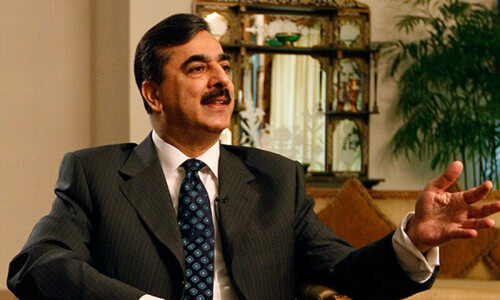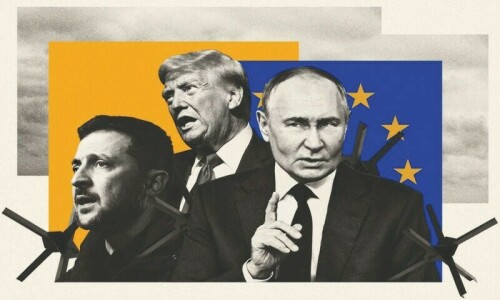Amazon.com Inc founder Jeff Bezos will buy the Washington Post newspaper for $250 million in a surprise deal that ends the Graham family's 80 years of ownership and hands one of the country's most influential publications to the businessman whose Internet company has transformed retailing.
Bezos, hailed by many as technology visionary, called his acquisition a personal endeavor and reassured employees and readers of the 135-year-old newspaper he will preserve its journalistic tradition, while driving innovation.
The acquisition, the latest in a flurry of deals for print publications including the New York Times Co's sale of the Boston Globe for $70 million, is a another sign of the unprecedented challenges newspapers face as advertising revenue and readership decline.
Shares of the Washington Post Co climbed more than 5 percent to $599.85 after hours - their highest level in almost five years.
Donald Graham, the chairman and CEO of the Washington Post Co, said in an interview that he and his niece Katharine Weymouth, the Post's publisher, made the decision to put the newspaper up for sale earlier this year after looking at its financial forecasts.
"For the first time in either of our lives we said to each other: is ownership by the Washington Post Co the best thing for the newspaper? We could keep it alive, that wasn't the issue. The issue was could we make it strong?"
Graham and Bezos discussed the deal at two meetings in Sun Valley, Idaho during the annual Allen & Co media and tech conference in July. The investment bank had been retained earlier in the year to gauge potential buyer interest, and is now the banker on the deal.
Graham's company had talked to no more than a dozen parties about selling the paper. He declined to name the other parties.
"I named a price and Jeff agreed to pay it," said Graham, who initially thought Bezos would be an unlikely buyer. "To my surprise, when (Allen & Co) said they would call him, I said that would be great but I didn't think he would be interested."
The investment bank ended up advising on the deal.
At a meeting in January, Graham said longtime friend and former Washington Post board member Warren Buffett referred to Bezos as the best CEO in the United States for his technology and business acumen.
"I asked (Bezos) why he wanted to do it and his reasons are the best ones: he believes in what newspapers do and what the Post does and that it's important to the country," Graham said.
The Amazon CEO took that message directly to employees in a letter posted on the newspaper's website.
"I understand the critical role the Post plays in Washington, DC and our nation, and the Post's values will not change," Bezos wrote in the letter.
"There will of course be change at the Post over the coming years. That's essential and would have happened with or without new ownership," Bezos added. "We will need to invent, which means we will need to experiment."
In addition to the newspaper, Bezos gets other publishing businesses, including the Express newspaper, The Gazette Newspapers, Southern Maryland Newspapers, Fairfax County Times, El Tiempo Latino and Greater Washington Publishing.
The real estate, including the paper's headquarters business and online news sites such as Slate, will remain with the Washington Post Co. And the paper's operations will be kept separate from Amazon.com, according to the Washington Post.
TOUGH TIMES
The Washington Post is the seventh largest daily in the United States and was where journalists Bob Woodward and Carl Bernstein broke the "Watergate" story which led to the resignation of President Richard Nixon in 1974.
While its legend and status loomed large, the Washington Post represents only a fraction of the company which has expanded into a stable of holdings, including education and health care services and most recently an industrial supplier. The collection of companies that make up the Washington Post is akin to that of Warren Buffett's Berkshire Hathaway Inc, which owns disparate businesses from railroads to underwear as well as a stake in the Post.
And yet, the Washington Post suffers from the same hurdles besieging big city newspapers across the United States. The company's newspaper division reported an operating loss of $49.3 million for the six months ending June compared to a loss of $33.2 million during the same period last year.
Weymouth, who will continue to serve as the paper's CEO and publisher after the sale, told Reuters she did not think there was a "magic bullet" to resolving the problems. But the resources Bezos brought to the table were a plus.
"He's smart and innovative and has access to a lot of smart people," she said.
Bezos, who has built Seattle-based Amazon.com into a shopping and online technology force over the last two decades, made a small foray into media earlier this year with an investment in Internet news site Business Insider.
Bezos is the world's 19th richest person with a fortune of $25.2 billion, according to Forbes magazine. His investment vehicle, Bezos Expeditions, is invested in a number of companies including Twitter and Business Insider.
His major personal project is called Blue Origin, which aims to be one of the first non-government funded ventures to send people and cargo into space, potentially winning lucrative contracts that were once fulfilled by NASA.
Bezos has already spent millions of dollars on this project, with millions more in the pipeline.
He did not elaborate in great detail on his motivations behind his latest deal, which caught many industry watchers by surprise. He does not play a prominent role in politics but has been described by friends as holding libertarian views. He and his wife did make public a $2.5 million contribution to a Washington state campaign to legalize same-sex marriage last year.
The deal comes on the heels of near-unprecedented media deal activity this year, with the Globe transaction announced just over the weekend, News Corp spinning out its newspapers, and the Tribune Co hiving off its publishing business like the Los Angeles Times and Chicago Tribune from its broadcasting division.
Free of its print assets, the Washington Post could continue to snap up other properties that align with the six TV stations in cities like Houston, Washington DC and Miami and cable TV services in more than a dozen states.
"It will be interesting to see, is this the first step in the transformation of the business?" said John Miller, senior vice president at Chicago's Ariel Investments, a top-10 investor in the Washington Post. "The board is making the right decision. They obviously felt like it was a good deal. It will be interesting to see how they allocate capital going forward."


















































